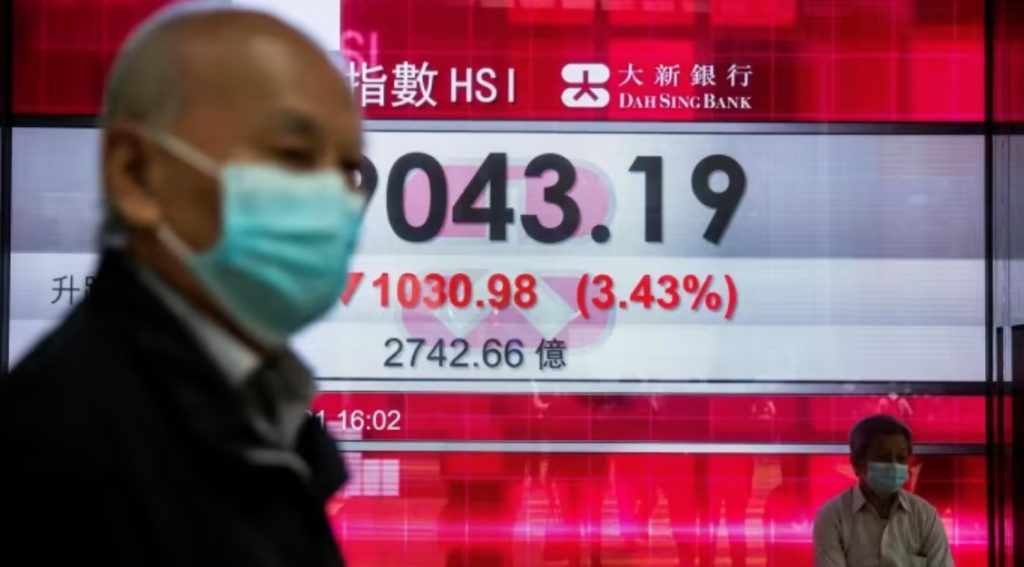
SINGAPORE — Shares in the Asia-Pacific traded higher on Monday as investors assess inflation and recession fears.
Hong Kong’s Hang Seng index led gains in the region, to end the day 2.35% up at 22,229.52, after trading more than 3% higher in the session. The Hang Seng Tech index popped 4.71%. Alibaba’s shares in the Chinese city rose 3.69% while Meituan was up around 3.48%.
Mainland Chinese markets also gained. The Shanghai Composite climbed 0.88% to close at 3,379.19, and the Shenzhen Component rose 1.1% to 12,825.57.
Japan’s Nikkei 225 gained 1.43% to close at 26,871.27, while the Topix rose 1.11% to 1,887.42. In Australia, the S&P/ASX 200 advanced nearly 2% to 6,706.
The Kospi in South Korea gained 1.49% to end the session at 2,401.92, and the Kosdaq was 2.71% higher at 770.6.
MSCI’s broadest index of Asia-Pacific shares rose 1.72%.
Russia defaulted on foreign-currency sovereign debt for the first time in more than 100 years, Bloomberg reported. The country’s central bank foreign reserves remain frozen.
At the G-7 summit, U.S. President Joe Biden and other world leaders announced a $600 billion infrastructure program that aims to focus on key areas such as building health systems and information and communication technology networks.
Construction materials company James Hardie Industries, which is listed in Australia, saw its stock rise 1.99%. Boral’s shares gained 2.54%.
In company news, Trip.com is set to report its first-quarter financial results on Monday in the U.S. after the market close. The firm’s shares in Hong Kong were 6.58% higher ahead of the announcement.
Later this week, China and Japan will be reporting Purchasing Managers’ Index data, while Hong Kong will commemorate the 25th anniversary of its handover. China’s President Xi Jinping will be attending the anniversary events, state media Xinhua reported over the weekend.
On Friday in the U.S., stocks rallied to snap previous losing streaks.
“It just highlights the fact that markets are going to be very volatile until we do pass that peak in inflation and the outlook for central banks being as hawkish as they are,” said Kerry Craig, global market strategist at JPMorgan Asset Management.
He said markets tend to be choppy as many central banks in developed economies enter a new cycle for rate hikes.
“It’s when you have clarity on that path forward, then you start to refocus on the fundamentals,” he told CNBC’s “Squawk Box Asia” on Monday.
Futures rose slightly on Sunday night following last week’s comeback.
Currencies and oil
The U.S. dollar index, which tracks the greenback against a basket of its peers, was at 103.850.
The Japanese yen traded at 135.04 per dollar, strengthening from levels above 136 against the greenback last week. The Australian dollar was at $0.6935.
Oil futures were little changed in Asia’s afternoon trade. U.S. crude just below the flatline at $107.61 per barrel, while international benchmark Brent crude inched up 0.19% to $113.33 per barrel.